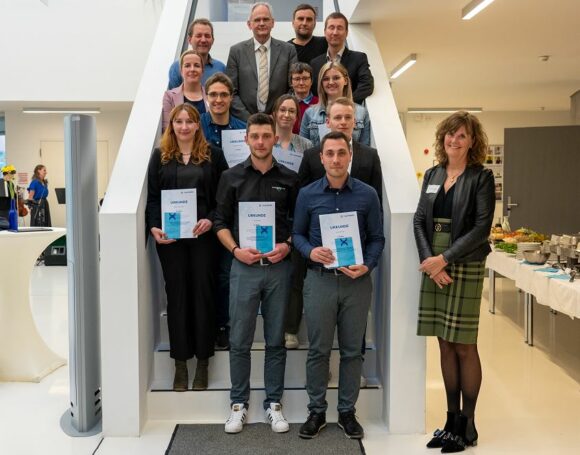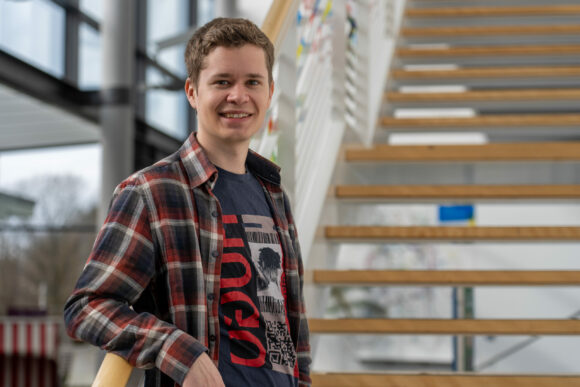Hof University of Applied Sciences wants to recruit foreign nursing staff, strengthen their skills and integrate them. The reason: Bavaria alone is currently losing more than 1,000 nursing staff each year, while at the same time studies by the Free State of Bavaria assume a tenfold increase in the need for nursing staff by 2050 – mainly due to an aging society. One key to countering this plight will be to recruit foreign nursing professionals. To drive this forward, the master’s program “Cross Cultural Nursing Practice M.A.” – the only one of its kind in Germany – will start at Hof University of Applied Sciences in 2024.

Image: adobestock.com
Now numerous representatives of different health and care facilities of the region informed themselves about him at the university yard.
As university president Professor Dr. Dr. h.c.. J?rgen Lehmann in its greeting to consider gave, in particular in India other Lands of the Federal Republic are already very active regarding the recruitment of foreign care specialists and even various Headhunter, thus for the recruitment paid agencies, are here already active:
We must accelerate in Bavaria thus urgently, in order to still achieve in time qualified Zuwanderung for the care and hospital sector. That is why we want to create a pilot project at Hof University of Applied Sciences that will have a nationwide signal effect. There is not yet a comparable initiative for care migration in all of Germany.”
Prof. Dr. Dr. h.c. Jürgen Lehmann, University President
However, headhunters who do not take care of young people immigrating to Germany have already had a deterrent effect in India, for example, he said.
Focus on intercultural competencies, language and healing activities
A tuition-free master’s degree program is to be created that is aimed at nursing staff worldwide who are already pre-qualified with a bachelor’s degree. In doing so, the university has its sights set above all on India, where the Hof University of Applied Sciences maintains excellent contacts. “More than 800 Indian students have already been integrated with us without any problems, of which about two-thirds remain in Germany as workers. With the Bavarian-Indian Center for Business and Higher Education as well as with our office in Bangalore, we are also excellently networked on the subcontinent,” says Prof. Lehmann. The focus of the training will be on teaching the language and learning intercultural skills. Therefore one wants to recruit among other things in co-operation with the catholic youth work Don Bosco also in particular among the Christian minority in the south of India for the training in Upper Franconia: This is to be seen expressly not as discrimination of other religions, but is to facilitate only the integration of humans with us. However, we will generally take a very close look at who fits in with us and who is eligible – this also applies to the examination of sufficient prior qualifications,” says the university president.
New course of study: Cross Cultural Nursing Practice
Prof. Dr. Gerald Schmola, Dean of the Faculty of Interdisciplinary and Innovative Sciences at Hof University of Applied Sciences, pointed out that Germany is by no means a paradise for potential students from abroad anymore – especially since German has to be learned here first, while Indians in English-speaking countries, for example, have a clear integration advantage. At Hof University of Applied Sciences, he said, German is already required at A2 level in the application process, and he wants to improve this to B2 (European Framework of Reference) as part of the English- and German-language studies.
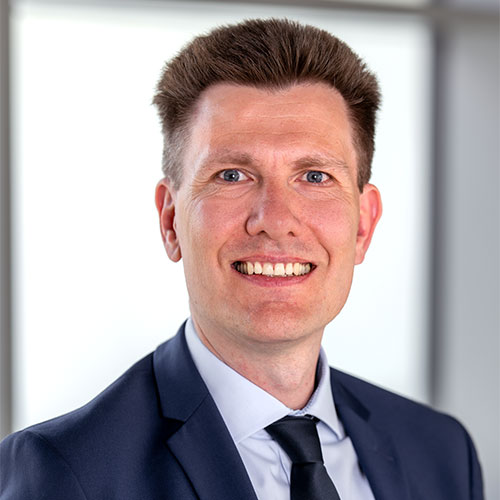
innovative sciences at Hof University of Applied Sciences; Image: Hof University of Applied Sciences;
Matthias Drossel, himself a trained health and nursing professional and professor of applied health care, then went into detail about the core components of the new degree program:
It is not about a higher value of academic education compared to one- or three-year apprenticeships and specialized further training, but about the best possible qualification for patient care through extended competencies.”
Prof. Dr. Matthias Drossel
In addition to the topics of language and culture and the teaching of additional medical and nursing competencies for direct patient care, the new students also expect to complete a master’s thesis based on at least 900 hours of work on patients during their internship. They will also be extensively prepared for the nursing knowledge exam (according to § 45 PflAPrV). “We need them all: trained and studied! Everyone brings their own special skills to the table. The combination of degrees, experience and skills, the so-called skill and degree mix, must be oriented to patient care,” says Prof. Dr. Drossel.
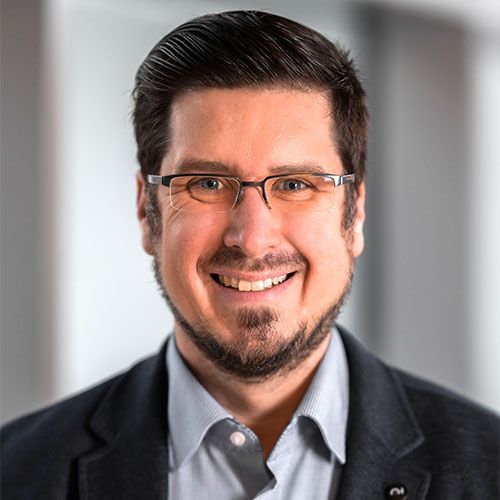
Recognition procedures to be accelerated
On behalf of the Bavarian State Ministry for Health and Care, Ministerial Councilor Dr. Gregor Jaburek took part in the event on behalf of Health Minister Klaus Holetschek. He praised the international orientation of Hof University of Applied Sciences and made clear the Bavarian state government’s goal of simplifying, standardizing and accelerating state procedures for the recognition of foreign professional qualifications in nursing. “As part of the centralization of recognition procedures at the State Office for Nursing from July 1, 2023, and numerous measures to streamline administrative procedures, we will significantly reduce the average processing time for applications,” Dr. Jaburek said. In2022, he said, a total of around 3,600 applications for recognition as a nursing professional were submitted, mainly from the Philippines, Bosnia/Herzegovina and Tunisia. The trend is clearly upward. Of around 260,000 nursing staff in Bavaria, about 20 percent are currently from abroad, he said. “A major challenge is also to keep the foreign nursing staff in Germany permanently. Therefore, the state government attaches particular importance to the issue of integration,” the ministerial councilor said. Therefore, he said, the approach of Hof University of Applied Sciences is absolutely right to place great emphasis on integration in society and the labor market at the same time as studying.”
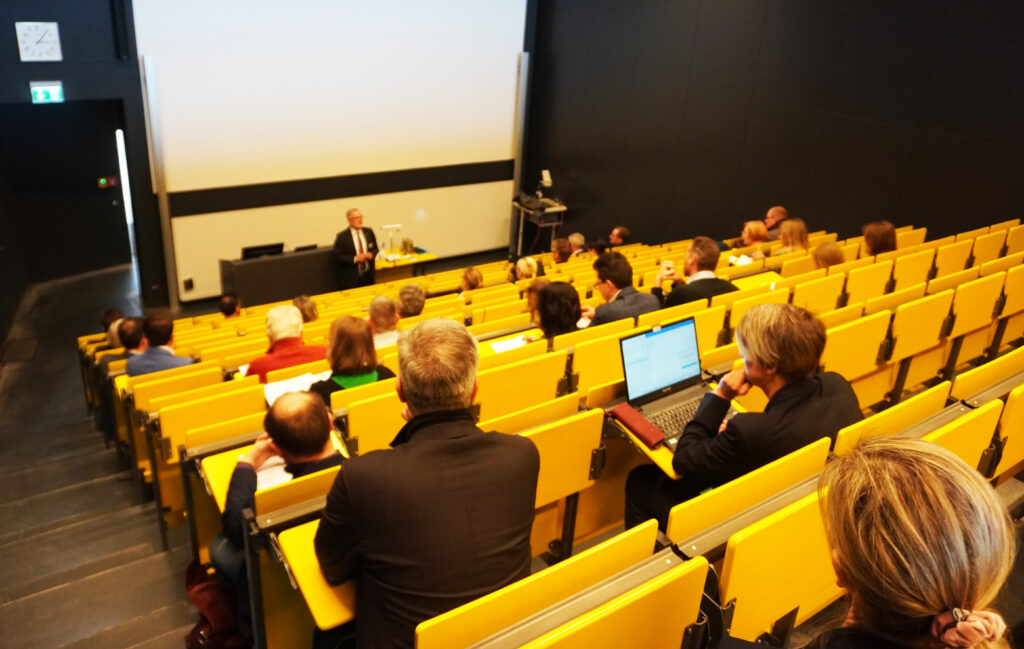
Image: Hof University of Applied Sciences;
Care monitoring: regional answers important
Michael Wittmann, managing director of the Association of Caregivers in Bavaria (VdPB), agreed:
“One challenge is that many caregivers who have moved to Germany will not be happy here as long as there is a lack of support in the private sector. That, too, needs to be addressed.”
Michael Wittmann, Managing Director VdPB
His colleague Bernhard Krautz then presented the authoritative findings of the VdPB’s current “Monitoring Nursing Staff Requirements.” He concluded that vacancies often remain unfilled for months, that there is no longer any balance between supply and demand, and that employers are experiencing enormous competition in their efforts to recruit nursing staff. In addition, the mobility radius of the nursing staff is very small at 20 to 25 kilometers: “But it is also understandable that no one wants to travel long distances after hours of physically demanding work.
However, the average length of stay in the profession is 16 to 20 years, which is longer than is often assumed. Another positive aspect is the high density of care within Bavaria, with hospitals, inpatient and outpatient care, and a large number of rehabilitation facilities. Due to very heterogeneous requirements across all administrative districts, the question of where and when how many personnel will be needed in the future is very difficult to answer: “The supply and also the requirements are extremely different from region to region and must therefore be planned on a very small scale,” says Krautz. In addition, the goal must be to reduce personnel-intensive forms of care such as full inpatient accommodation and to fundamentally upgrade the role of nursing.
Engaging discussion
The event was followed by a wide-ranging discussion with the representatives of the healthcare facilities present. Many of them signaled their willingness to provide internships for students. Dr. Michael Schneider from the State Office for Nursing also contributed to the discussions and supports the study program with his team on the topic of recognition procedures and knowledge examinations.





